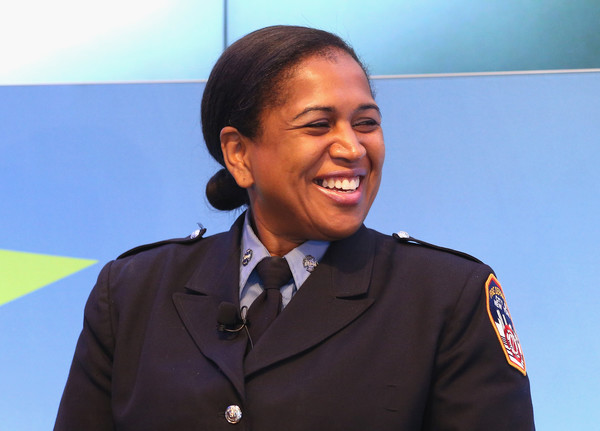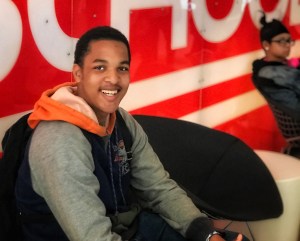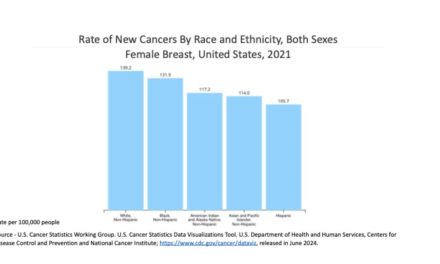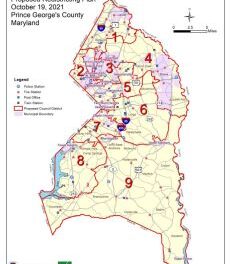By Helen Bezuneh,
Special to the AFRO
Regina Wilson looked up from her position on the fire engine to find her vision clouded by billowing clouds of white smoke.
She couldn’t help but be stunned by what she was seeing: vehicles were ablaze, buildings were on fire and screaming people–covered in ashes–ran through the streets of Lower Manhattan.
She’d never seen the city like this before– and she’d seen some emergencies. After all, she was a firefighter with the New York City Fire Department, at the dawn of a new millennium.
But this was different. This was September 11, 2001.
“It looked like a war zone,” Wilson told the AFRO. “It was hard, because usually we have to suppress the feeling of fight or flight when we’re feeling scared or don’t know where to start and don’t really know what’s happening. It was just another type of sustainability that you had to keep.”
“You had to dig deep for it in order to stay focused on what you were doing because there was so much uncertainty of what was gonna happen next–what’s gonna explode?” Wilson said, recalling the anxious questions running through her head. “Is anybody gonna shoot me? Is a building gonna fall? Is a car gonna explode? It was the weirdest feeling.”
Moments before, Wilson was just a second year employee with the fire department. She was at the fire station preparing to start a day on the fire truck when a coworker, John Chipura, asked if they could switch positions for the day.
Knowing he wanted more experience on the truck, Wilson agreed. She would be on the engine, and Chipura would be on the truck.
It was a decision that saved her life.
“It was an indescribable, clear, beautiful, brisk day,” Wilson said. “But it ended up being one of the worst days.”
As she moved her belongings from the truck to the engine, she heard her fellow firefighters loudly cussing in the kitchen. Working in a FDNY firehouse, it was initially passed off as normal. But then she walked into the room. There, she watched as a television newscaster explained: a commercial aircraft had just flown into one of the two towers that made up the World Trade Center.
Those on the truck were immediately dispatched to the burning buildings in Lower Manhattan’s Finance District. The engine followed behind roughly 40 minutes later.
The engine sped through the Brooklyn–Battery Tunnel and was approaching its end when Wilson says she and her colleagues felt their rig shake in a matter it had never done before.
The first building, the South Tower, had fallen. Still, they pressed toward the towers.
Through the blinding smoke, a woman approached. She was covered in dust and having an asthma attack. The first responders washed her face down and instructed her to walk away from Ground Zero. Then came a deafening noise: the North Tower was falling.
“My boss told us all to just run. So we ran back to the engine that we were just trying to get to the command post. I jumped on the back and he told us to put our masks on,” said Wilson. “I remember trying to hurry up and put my mask on because all I could see was this big cloud of black smoke…I had just put my mask on when we just got consumed by this thick, black smoke.”
Wilson told the AFRO she feared she was living her last few moments on Earth.
“I was like ‘something’s gonna fall on us, we’re gonna die today.’”
As the smoke cleared a bit, the firefighters sprang into action, grabbing equipment to help in any way they could.
“We had to draft water from the river in order to put fires out,” she said. “We spent most of the time trying to collect it and hook up with the marine units so that we could draft water to put out some of these building fires and car fires all over the place. You just didn’t even know where to start.”
The chaos unfolded on live television with viewers around the world watching. From Wilson’s point of view, the reality was grim: every single person on her company’s truck died at Ground Zero, including Chipura, the man who switched positions with Wilson.
Chipura was one of 343 firefighters who died that day.
As she lives in the shadow of that disastrous day, Wilson finds that her ability to cope changes from year to year. At times she is happy to remember the people and the good times, but there are darker moments.
“Year to year, it conjures up different thoughts,” she remarked. “Sometimes the weight of the moment can get to me– just thinking about John and what his life could have been.”
Wilson said she lives life to the fullest because she doesn’t want to take for granted the fact that she is still here, when more 2,990 people perished on that day.
“I’m here from that switch. I was okay this year, last year I was a mess.”
Wilson’s firehouse has a memorial march every year, with firefighters coming from across the world to join. After they have breakfast together, they get on the subway with flags that represent every firefighter and officer who died in their battalion. They then march to the World Trade Center, do a final salute, have a moment of prayer, and walk their flags back to Brooklyn.
As the president of the Vulcan Society, a fraternal organization of Black firefighters in New York City, Wilson considers it especially pressing to improve public awareness of the Black firefighters who risked their lives on that fateful day.
“I think one of the biggest things as the president of the society is not only making sure that the members are prepared, but also making sure that we’re not forgotten,” she said. “There were 12 Black firefighters that died during 9/11– but if we don’t speak their names and don’t tell their story, they will be forgotten.”
Wilson said the 12 Black firefighters are remembered via a community garden in Brooklyn.
“Every year we go and pay our respects and pay homage to those Black members that passed away because the media doesn’t recognize their lives and their purpose.”
Wilson also aims to spotlight the more general experiences Black firefighters have on the job, day to day. On Sept. 11, 2001, she was the only woman in her firehouse, and was one of two Black people in a class of 300.
“Being [in] an environment where you are not even able to relate to someone who may be feeling the same things, or experiencing similar things and how to process it was a little hard,” said Wilson.
As she moves forward in life, Wilson takes the lessons she learned on Sept. 11 along with her.
“There were a few lessons I learned: survivor skills and being okay with being alive–being purposeful about the meaning of the time that I have, and not wanting to dishonor myself or dishonor John.”
Wilson relies heavily on her faith and believes her life was spared for a reason. “God spared me for whatever reason. If there was a purpose to be had, then I want to find the purpose.”
“You have to love what you do, you have to love the community in order to serve them the way that’s done with firefighters,” she added. “One of the biggest things that I took away from that is that love and respect–when you come together– [can] be the most beautiful thing in the world.”
The post Never forget: how one Black firefighter survived 9/11 appeared first on AFRO American Newspapers .










